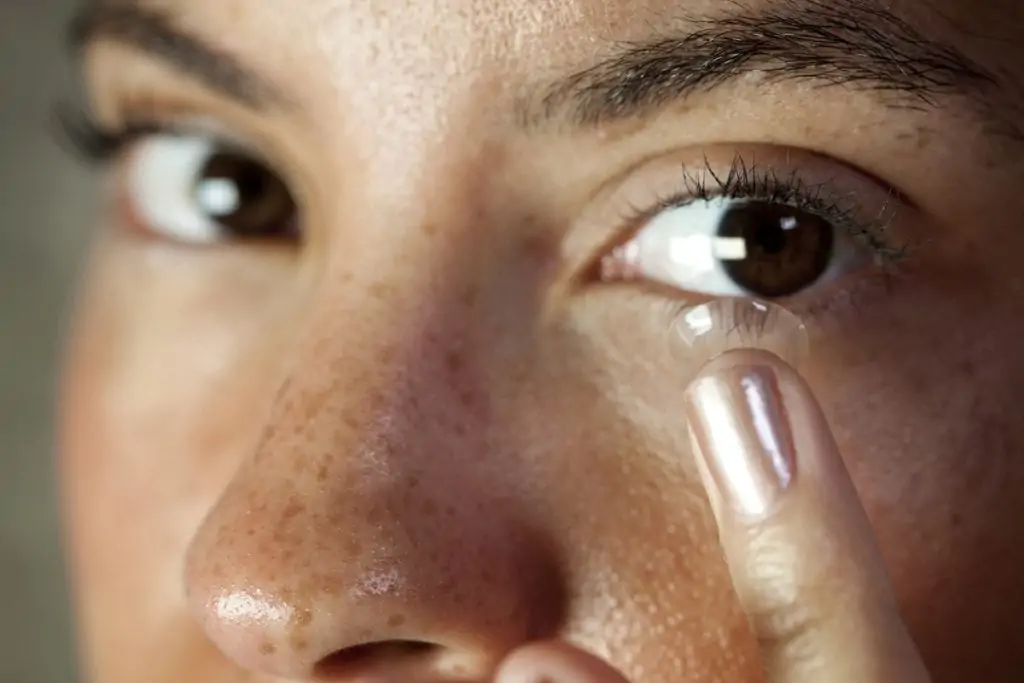Why Contact Lens Wearers Need Their Annual Eye Exam

Contact lenses give the world the illusion that you have perfect vision when, in fact, you don’t. And, while contact lens materials and technology have advanced for the more than 30 million wearers, even those individuals who are diligent about contact lens hygiene experience symptoms that make wearing contact lenses uncomfortable or even risky. In fact, it is estimated that 15 percent of contacts lens wearers develop contact lens intolerance and stop wearing their contacts every year.
We talked with Dr. Eric Donnenfeld, F.A.C.S., a board-certified ophthalmologist, to learn more about the variety of contact lens intolerance symptoms, as well as why you should discuss your vision correction options with your eye doctor annually.
Q: Why is it particularly important to see an eye doctor annually if you are a contact lens wearer?
Dr. Donnenfeld: Contact lenses are a great option for many and offer a level of convenience that glasses do not. However, because contact lenses physically cover a portion of the surface of the eye, the amount of oxygen getting to the cornea, or surface of the eye, is reduced. Over time, this lack of oxygen can impact the health of the eye and even cause permanent damage. It is very important for anyone wearing contact lenses to be diligent with scheduling an annual eye exam. The health and wellness of your cornea – and ultimately your vision – depend on it.
Q: What are contact lens problems to discuss with your eye doctor during an annual exam?
Dr. Donnenfeld: In general, communicate any irritation, feeling of dryness, increased grittiness, stinging or redness – especially if any or all of these symptoms have increased over time. Many of my patients report spending less time in their contacts as time goes on simply because they are so uncomfortable. Are routinely getting your contact lenses stuck in your eye, the feeling they migrate behind your eye or other difficulties in putting in or removing your contacts? These are all signs your eyes may be telling you that you have contact lens problems that need the attention of an eye doctor. These symptoms may be temporary and an indication of contact lens intolerance, but they also may be an early sign of far more serious issues such as chronic dry eye, corneal abrasions, allergy, infections and even vision threatening corneal ulcers.
Q: What are options for those who have contact lens intolerance?
Dr. Donnenfeld: There are always options to contact lenses. There are treatments for dry eye and allergies to make lenses more tolerable. Anyone can go back to glasses but there also are many laser vision correction options to discuss with your eye doctor. Research suggests you may be more satisfied with your vision if you take advantage of a procedure such as LASIK.
In fact, a recently published study of long-term contact lens users showed that, over a 3-year period, satisfaction with contacts fell from 63% to 54% . The study also reported long term contact lens wearers who then chose to have LASIK eye surgery had a much higher level of satisfaction with their vision that only improved over the three-year period. Importantly, LASIK has a much lower risk of sight threatening infection – 1 in 10,000 according to clinical research. Other research indicates there may be a limit to how long people can safely and effectively use contacts.
If you are experiencing frequent symptoms of contact lens intolerance, it may be time to take the next step in your vision correction journey. Today’s advanced laser vision correction procedures, like LASIK, can help many people achieve excellent vision without relying on glasses. As you discuss your contact lens problems with your ophthalmologist, getting an evaluation to determine if you are a good candidate for LASIK or other laser vision correction procedure is a good way to get the facts about your options after contacts.




